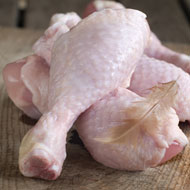‘Low risk’ to UK consumers from LA-MRSA - report

John Fishwick, BVA junior vice president, called the findings “very positive news".
The risk of LA-MRSA being transmitted to UK consumers is ‘likely to be very low’ according to a risk assessment by the Food Standards Agency (FSA).
FSA advice on cooking meat thoroughly and practising good food and kitchen hygiene, remains unchanged and ‘should be sufficient’ to ensure harmful bacteria is destroyed, the report says.
The assessment looked at the risks associated with preparing, handling and consumption of foodstuffs in the UK which may be contaminated with MRSA, and in particular LA-MRSA.
John Fishwick, BVA junior vice president, called the findings “very positive news” and encouraged consumers to follow FSA advice on storing, preparing and handling meat, which includes washing hands and kitchen equipment after touching raw meat.
However, whilst the risk assessment is based on the best available evidence, FSA acknowledges that there are uncertainties about the prevalence of LA-MRSA in food and food animals.
Mr Fishwick added: “LA-MRSA is a resistant bacterium which has been identified in livestock in various countries throughout the world, although cases are rare in UK herds.
“However, it’s vital we don’t become complacent. It is highly important that vets continue to lead the way in encouraging the responsible use of antibiotics, to ensure valuable antimicrobials remain effective and that diseases and infections can be efficiently treated.”



 The Federation of Independent Veterinary Practices (FIVP) has announced a third season of its podcast, Practice Matters.
The Federation of Independent Veterinary Practices (FIVP) has announced a third season of its podcast, Practice Matters.